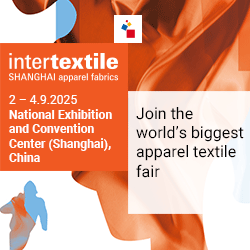The Indonesian Small and Medium Industry Entrepreneurs Association (APIKMI) urged that the safeguard policy for garment finished goods be implemented immediately. This is needed because the Indonesian garment IKM actors are increasingly depressed by the massive onslaught of imported finished goods from China and Thailand.
APIKMI Secretary General Widia Erlangga admitted that in the past year, all domestic business sectors have been forced to adjust to the conditions of the Covid-19 pandemic.
According to him, the government often praises IKM or small and medium industries because they are considered able to survive in a difficult situation like today. However, he continued, the government's statement was considered to be contrary to the current situation that IKM is experiencing.
"There are two main things that seem to make the business climate of IKM players even more uncertain. First is the scarcity of raw materials and the second is the massive onslaught of imported finished goods from China and Thailand," he said.
According to him, the existence of the Minister of Finance Regulation (PMK) No.161 / PMK 010/2019, PMK No.162 / PMK. 010/2019 and PMK No.163 / PMK.010 / 2019 regarding the imposition of Temporary Safeguard Measures (BMTPS) / Safeguards Import Duty on imports of textiles and textile products (TPT), which took effect in November 2019, greatly impacted the scarcity of imported raw materials in domestic market.
"The production capacity of local textile industry players is currently decreasing significantly and cannot meet the demand in the domestic market," he said.
Meanwhile, he continued, the onslaught of imported finished goods from China and Thailand is currently very large and very easy to obtain in the domestic market.
"So far, garment IKM players feel that their products cannot compete with imported finished goods that have not been subject to additional import duties such as imported raw materials," he said.
In addition, said Widia, many parties have switched to importing finished goods, because they are considered to be easier and more economical than producing domestically.
"The increase in imports of finished goods for headscarves (HS Code 621430: veil / scarf) has been seen since 2017. BPS data and processed by APIKMI, show that in 2017 - 2019, imports of veils / scarf from 5 countries (China, Turkey, Malaysia, India and Pakistan) to Indonesia continues to increase, "he said.
He explained that the accumulation in 2017 reached 8.6 million kg or 84.1 million pcs, and in 2018 it was 12.9 million kg or 125.2 million pcs, then in 2019 it was 10.9 million kg or 105. , 6 million pcs.
"Based on these data, it shows that the safeguard for garment products must be realized. Because it can be seen that the number of imports entering Indonesia for goods made of headscarves / scarves is so large," he said.
According to him, headscarves are used as an example because the IKM in Indonesia that produce veils are very large.
"If imports of finished goods, including headscarves, are not enforced by safeguards, one of the most affected is IKM, especially the Cicalengka area, which is one of the largest veil producing areas in West Java, which will be threatened with closing its business," he said.
Then, continued Widia, if we refer to the description of the production capacity of the headscarf IKM in Cicalengka, on average it is capable of producing 2,000 scores of headscarves or 40,000 pcs per month per IKM.
If calculated with the total number of Cicalengka headscarf IKM as many as 500 actors there, it is capable of producing 240,000,000 pcs of veils per year.
This amount is at least able to represent most of the need for headscarves in the domestic market which is currently still dominated by imported headscarves.
Widia emphasized that the garment IKM players represented by APIKMI asked for an explanation from the government, especially the Ministry of Trade and the Ministry of Industry, regarding the imposition of raw materials that are subject to safety import duties, but for imported garment finished goods, the same thing is not applied.
"What are the considerations? Because it will be more profitable in business to import finished goods and can directly kill the garment IKM industry," he said.
According to him, the main hope is that the production process of garment / convection IKM players will return to stability and the selling price offered to consumers remains competitive.
"The government must act quickly, to issue a safeguard policy for imported finished goods, so that the current situation is not used as a gap by a handful of parties who take advantage of the situation," he said.
According to him, this policy can ease the IKM players in the convection sector or garment and local products, both from IKM players and the domestic industry, can be excellent in the domestic market of their own country.





